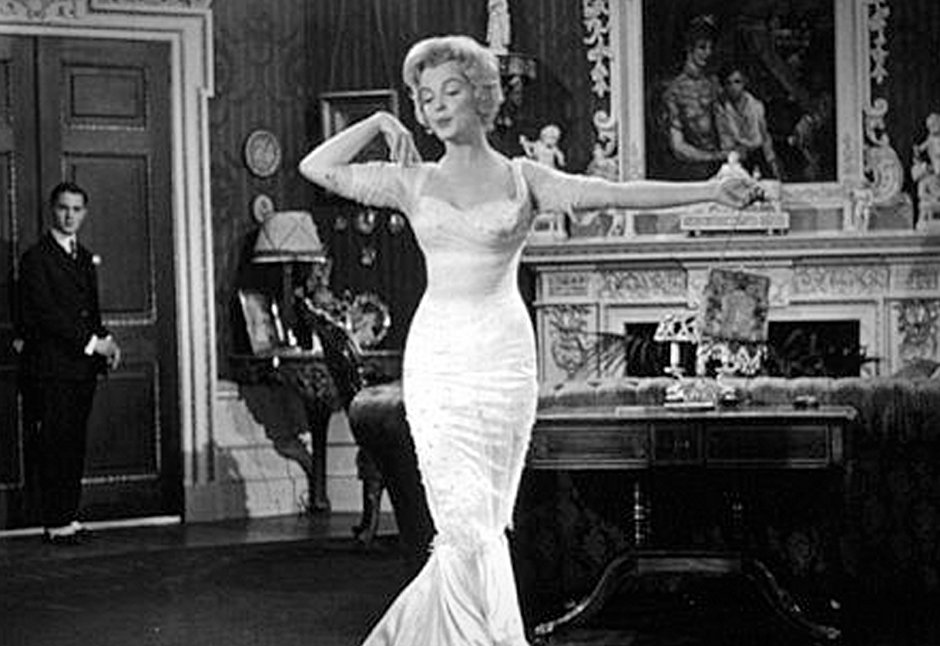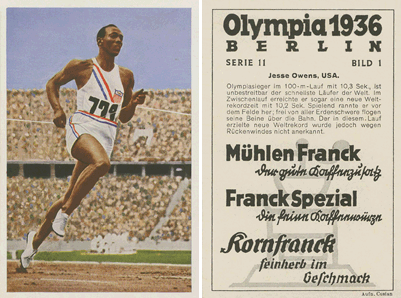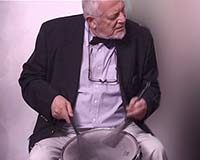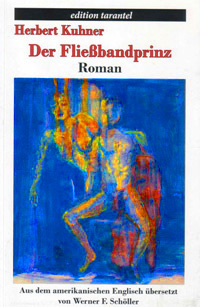A Princess
There was a beautiful princess who went to Hollywood and became the most elegant and attractive actress in the history of cinema. She acted well in every film she was in and each one was a box office success. You could say that she had a dream career.
In her mid-twenties, the princess decided that it was time to wed. She found an eligible prince, who however was not a prince in the same sense that she was a princess. They tied the knot, making her a genuine princess. That was the end of her film career and the beginning of matron-hood. It was as if a fairy godmother had waved her wand over the princess, but the wand was a wand in reverse. It did not provide magic, but rather removed it.
She was more of a princess before she became a princess. The sparkle in the eyes disappeared and her beauty rapidly faded. She played her new rule well, but it was the least exciting of all her roles. It was a role that she would play until her death.
The moral of this story is that being a tinsel-town princess beats being a real princess.
I Prefer Buster
Charlie came first and then came Buster. Charlie pratfell and caused pratfalls, and he battered around with the heavies. Charlie had a mean streak but Buster was always gentle. When the Looney Tunes cartoon characters came on the scene, they carried on in the Chaplin roughhouse manner.
Buster was the earnest and sincere one, always trying and failing and falling until before the fade-out There were the beauties that, in spite of his bashfulness and awkwardness, would sense the pure heart that beat in his breast, and thus Buster was rewarded.
Yes, Buster was pure of heart with innocent charm, and he had a grace of movement with a touch of gamin. He just kept on trying and trying again. There was no bilking or cadging.
It was Buster who captivated me. But then I’m biased. Not that I wanted to be like Buster. I wanted to have a smooth ride, but due to my Buster qualities, I’ve always had a rough one.
In his silent films Buster always got the girl at the end. However, when sound came in, Buster took a tumble and there was no girl waiting to go off with him. It’s not true that audiences weren’t ready to hear him speak.
He made the mistake of giving up his independence by signing with MGM, which amounted to signing his life away. Louis B. Mayer wanted things his way, which was not Buster’s way. Unlike Buster, Louis B. was not a genius, and as a result Buster’s films flattened and star rapidly faded, along with his fortune.
Unlike Charlie, Buster didn’t have a business sense. It was easy-come and easy-go. Buster hadn’t invested, so when the flow of money stopped, he was left high and dry. And to quench it all, there was the bottle.
Orson Welles relates that when Chaplin hired Buster for Limelight, his scenes were so wonderful that Chaplin left the best in the cutting room.
The myth is that audiences weren’t ready to hear Buster speak. Actually Buster’s foghorn voice did work, and there was a Keaton revival in the Sixties shortly before he became immortal.
Homage to the Three Stooges
Manny, Moe and Jack are not the Three Stooges; they’re the Pep Boys. The Pep Boys used their first names after Moe saw a dress shop called Minnie, Maude and Mabel’s, way back in the Twenties. The Pep Boys didn’t have an act. They were the owners of the Pep chain stores for auto parts.

The Ritz brothers, Hal, Jimmy, and Harry did have an act. They took the name “Ritz” after seeing the name on the side of a laundry truck. There was, however, nothing ritzy about them. They were a sort of B-film ersatz for the Marx Brothers. But they never approached the popularity of the Marx Brothers, who were the intellectual elite of all threesomes.
The three Stooges: Moe, Larry and Curley, had absolutely no intellectual pretensions. Their films were pure slapstick, with Moe giving – and Curley’s bald pate – getting most of the blows. Bonk was the sound most-heard between lines.
Although the Stooges provided comic relief in such prestigious celluloid ventures as Dancing Lady, a Joan Crawford vehicle, their own films were not even the B-part of a double-feature bill. They mostly starred in short subjects, which were sandwiched between the A-film and the B-film.
The Stooges are my favorite threesome. I first saw a Stooge film in 1940 in New York at the age of five, and they never wore off. To me, they’re in the wacky category of Spike Jones, only minus the instruments.
My sophisticated friends are aghast when I tell them that the Marx Brothers put me to sleep, but the Stooges keep me awake. Their films are not weighed down by a silly plot, and there’s no sappy romance to slow things down.
I can’t help it, I’m a Stooges fan. And I’ll be one to the end.
Speaking of an end, the Grim Reaper broke up the act by removing Moe from the scene. And with Moe gone, who would deal out those blows? No, without Moe, it was just no go!
In 1975, the Ritz brothers were called upon to fill in for the Stooges in Blazing Stewardesses. But soon after the release of that cinematic masterpiece, the Reaper broke up the Ritz’s act too.
Bonk!
Bringing The Dead to Life
John Huston brought James Joyce’s The Dead to life, or rather to the screen. It came to life in the sense that the beautiful Irish dialogue was spoken rather than read, as was the monologue that is the coda to the story.
John Huston brought James Joyce’s The Dead to life, or rather to the screen. It came to life in the sense that the beautiful Irish dialogue was spoken by the actors and heard by the viewer, rather than read by the reader, as was the monologue that is the coda to the story.
The Dead, as unfilmable, as any story can be, became a film due to the magic of the director and a cast of Irish actors, with voices imbued with the music of the brogue that lilts the Emerald Isle, actors whose home is the legendary Abbey Theatre.
The story is simple. Christmas dinner in 1904 marks the end of an old world and the beginning of a less humane new world. And then there is the coda in which Gabriel Conroy relates the death of a boy who loved his wife when she was young. He spends a rainy night below her window and catches pneumonia.
John Huston, a director of masterpieces like The Maltese Falcon, films containing masterful scenes and bombs like The Bible, decided that The Dead would be his swan song. He directed in a wheelchair with an oxygen mask at hand. Huston knew that this would be his last film.
Too much gallivanting, too much smoking and drinking with intemperate men such as himself, had made the end premature. Living life to the hilt means living a shorter life.
A dying John Huston kept himself alive so that this pet project would not go unfinished. And although Huston drew his last breath before it was finished – it did not go unfinished, His son Tony, who wrote the screenplay for another masterpiece Wise Blood, had adapted the Joyce story for the screen, and Tony had to put the finishing touches on The Dead.
To quote a sentence from Gabriel Conroy’s monologue: “One by one, we’re all becoming shades.”
While Huston was becoming a shade, he provided us with a film worthy of James Joyce. And that is an exemplary way of passing from this life.
– Herbert Kuhner











 Users Today : 2
Users Today : 2 Users Yesterday : 87
Users Yesterday : 87 This Month : 603
This Month : 603 This Year : 603
This Year : 603 Total Users : 221739
Total Users : 221739 Views Today : 2
Views Today : 2 Total views : 1955054
Total views : 1955054 Who's Online : 1
Who's Online : 1

 According to Balder von Shirach, Hitler said, “The Americans should be ashamed of themselves, letting Negroes win their medals for them. I shall not shake hands with this Negro…do you really think that I will allow myself to be photographed shaking hands with a Negro?”
According to Balder von Shirach, Hitler said, “The Americans should be ashamed of themselves, letting Negroes win their medals for them. I shall not shake hands with this Negro…do you really think that I will allow myself to be photographed shaking hands with a Negro?”




